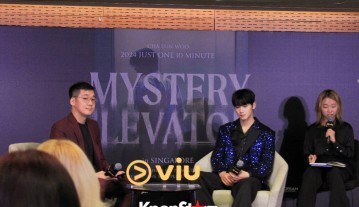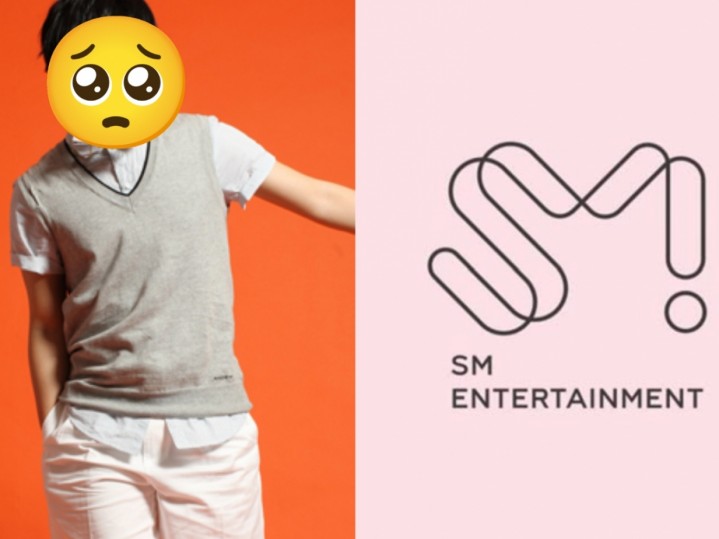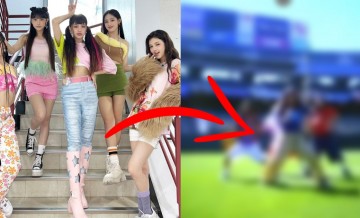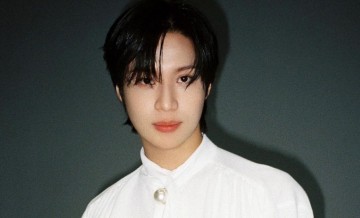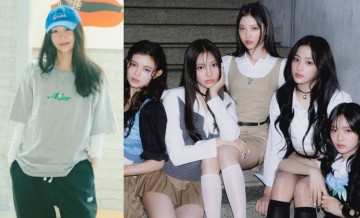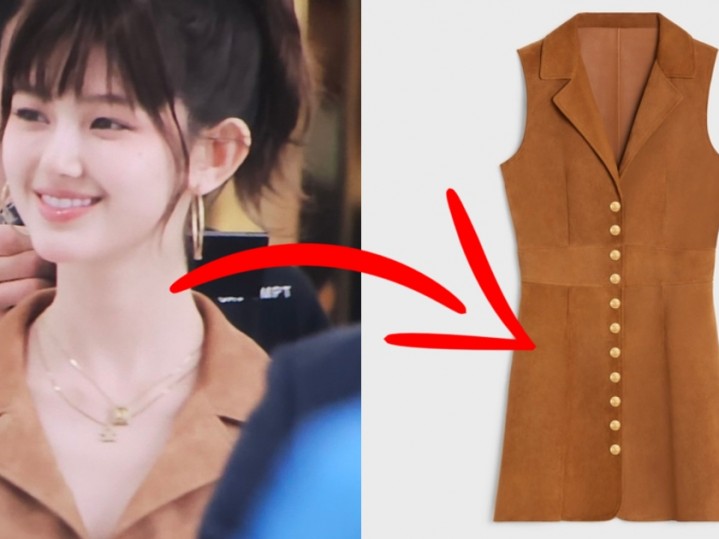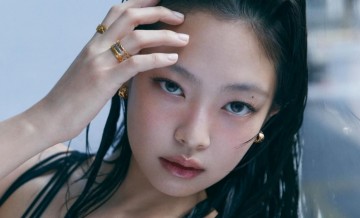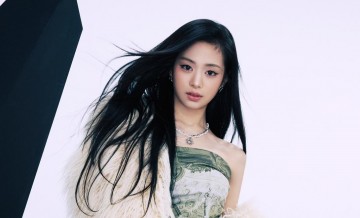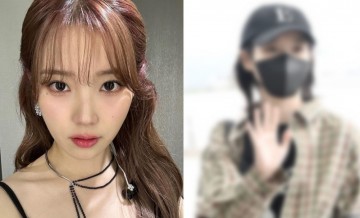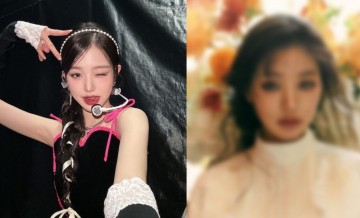Cultural Missteps And The Korean Wave: Why K-Pop Needs To Address The Elephant In The Room [OP-ED]
I enjoy the music of Korean hip-hop group BTS, particularly the mix-tape releases from Rap Monster. I recently had the opportunity to interview the rapper and the other six members of the group during their visit to the New York area for the first stop on their U.S. tour. BTS, also known as Bangtan Boys or Bulletproof Boyscouts, appeal to fans of hip-hop and K-pop, due to complex rhymes paired with an edgy, gangster rap aesthetic. But when the group is off-stage, their bulletproof image transforms into Korean boys-next-door. The juxtaposition between their onstage concept and real-life has helped their popularity, particularly with international and Black K-pop fans.
However, some of these same fans were offended by a statement made by Rap Monster, during his appearance at a Melbourne press conference. His seemingly innocuous comments sparked outrage from many in the Black and Hispanic K-pop communities, people who have dealt with Colorism- or discrimination based on skin color- for most of their lives.
Rap Monster and BTS are heavily influenced by American hip-hop because they respect aspects of this music and are trying to emulate it. They use imagery from hip-hop culture like guns and swagger. BTS worked with members of the Black hip-hop community during their show, "American Hustle Life" and were featured with Black women during the series. As a result, the group gained a larger following in the Black K-pop fan community. However, some of the same people who were attracted to BTS for their music and aesthetic were not pleased by Rap Monster's offhand comment during the Melbourne interview.
Anyone can unwittingly make a cultural misstep. As a Black person who is interested in Asian culture, there are times when I have struggled with the pronunciation of words or their meanings. As a result, I may have unwittingly offended interview subjects or friends from the Asian community, who in turn may have ignored the remarks or provided some gentle correction. I always feel like I have benefited more from being corrected than from having my ignorance overlooked. Is there not a spirit of openness that we can apply when dealing with people whose culture is different than our own?
In this spirit, I would like to provide some education as to why American fans of color were offended by the remark made in the Melbourne interview. Rap Monster and other K-pop idols who have made remarks about the color of people's skin may not realize Colorism is a huge issue in African-American and Latin-American communities. Colorism is a tense political issue because in the Americas, there is history of slavery and oppression, as well as a lingering sense (for right or wrong) that lighter skinned people have suffered less than darker skinned people. As a person of color who has lighter skin, I have dealt with less oppression than individuals from the African or Latin American communities who are considered to be darker. Nonetheless, having lived in largely Caucasian communities, I have experienced judgment for the color of my skin even though it is lighter than other African and Latin-Americans. In any event, Colorism is a complex and contentious issue, and an issue that Rap Monster unwittingly stumbled upon. This is the elephant in the room, that most people would rather avoid talking about.
Rap Monster and other K-pop idols who have made similar comments have a strong desire to embrace a culture about which they may have limited knowledge. They may not realize that the United States is in the midst of contentious debates about race, immigration and ironically, gun control. Hours before the BTS concert, four American military personnel were shot and killed in Tennessee by an alleged Islamic fundamentalist. The Twitter death threat against Rap Monster may have seemed like an innocent joke to some, but it came on the heels of tragedies such as that one, and the murder of nine African-American church-goers in Charleston, South Carolina, by an alleged white supremacist. This shooting was so disturbing to Americans that it led to the removal of the Confederate flag from the capitol of the state. Incidentally, this is a symbol that was used in Zico's "Tough Cookie" video, another instance of a cultural misstep stemming from not knowing the contentious debate around these issues in America.
I looked back to the video for "N.O," where BTS is confronting the militaristic classroom guards, clad in riot gear. These images evoke a history of oppression and violence that are present in both American and Asian societies. Obviously, BTS is channeling the same rage against oppression that hip-hop employs. This is why they are interested in hip-hop culture and why Black fans are interested in them. It should be noted that there was a large population of Black K-pop fans present at the New York City concert. Obviously, their use of this imagery is appreciated by this particular audience. However, the attention that they have from Black and Latin American audiences may translate into a need to be sensitive to oppression that they are channeling in their videos.
As the Hallyu Wave continues to spread and acts travel to the Americas, cultural sensitivity is a key aspect of navigating these tricky waters. While the imagery of bulletproof vests, gun-toting gangsta rappers, and bullets may have helped transform BTS into rising stars of K-pop, the United States is currently battling across party lines about gun control legislation, while attempting to confront sensitive issues like racially motivated police shootings and the pervasive racism that continues to haunt the country.
The internet troll that made the Twitter death threat may or may not have been Black. The photos posted by the individual featured a Caucasian person, but the true identity of the person remains unknown. If if the person was Caucasian, they may have been following the numerous comments made by Black fans, which expressed anger and dismay about Rap Monster's comment. It appears as though the user piggybacked on this issue, but their initial anger could have come from a real place. To dismiss this anger or its underlying cause diminishes the true nature of the issue. This dismissal was exhibited, for example, in comments from Korean netizens who allegedly referred to audiences in America as "cockroaches." Equally disturbing were the fans who stated on social media that they would kill the girl who was responsible for the alleged death threats.
I am not claiming BTS' Rap Monster was intentionally racist in his remarks or that his lack of cultural knowledge about Colorism in America is a bad thing. American fans may not understand the conflicts in pan-Asian society. Personally speaking, I do not claim to understand all of the issues present in Pan-Asian cultural debates, including the debate over the Liancourt Rocks*. However, because Rap Monster and other K-pop idols are interested in Black hip-hop culture, and because they seek to emulate some of the most confrontational and violent aspects of this culture, they should take the time to learn more about the controversial nature of Colorism in American history, as well as the implications of gun violence in these debates. There is a saying, "Those who do not understand history are doomed to repeat it." It seems this saying is especially relevant to this current situation, where a lack of understanding about the significance of Colorism and gun violence, has disrupted what was a great concert, with threats of gun violence motivated by anger over racial misunderstanding.
* known as Dokdo in Korean and Takeshima in Japanese, a group of small islets in the Sea of Japan whose rightful ownership is hotly debated among the two countries
All thoughts expressed above are those of the writer and do not represent the opinion of KpopStarz.
---
About the writer: Adrienne Stanley is a contributing editor for KDramaStars. She is also a contributing writer for KpopStarz, MTV Iggy, Viki and CJ Entertainment's KCON blog. Her passions include a love of K-pop and Asian drama. When she is not writing, she is hanging out on Twitter (@retrogirladdy).
